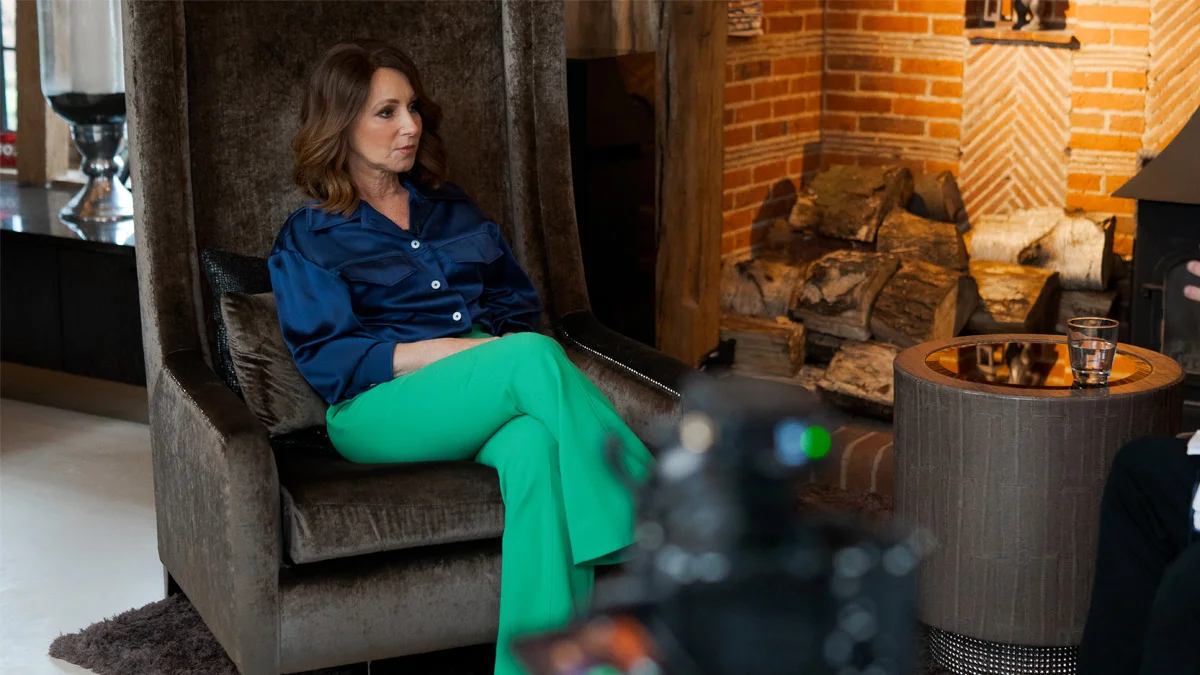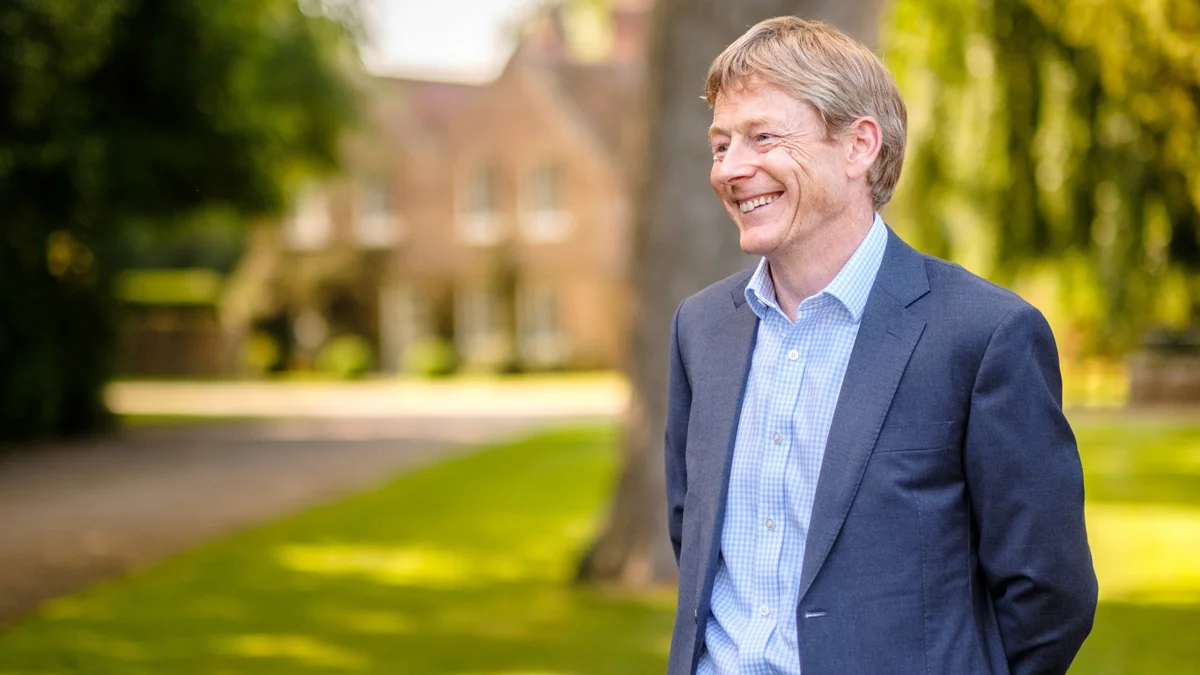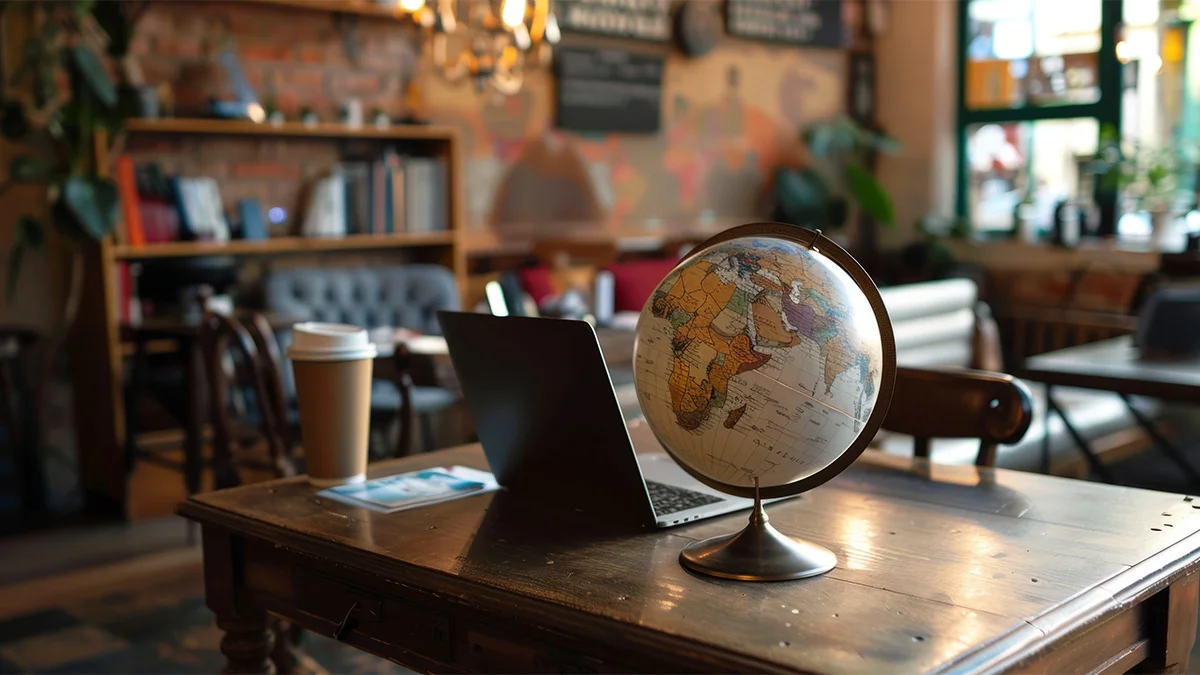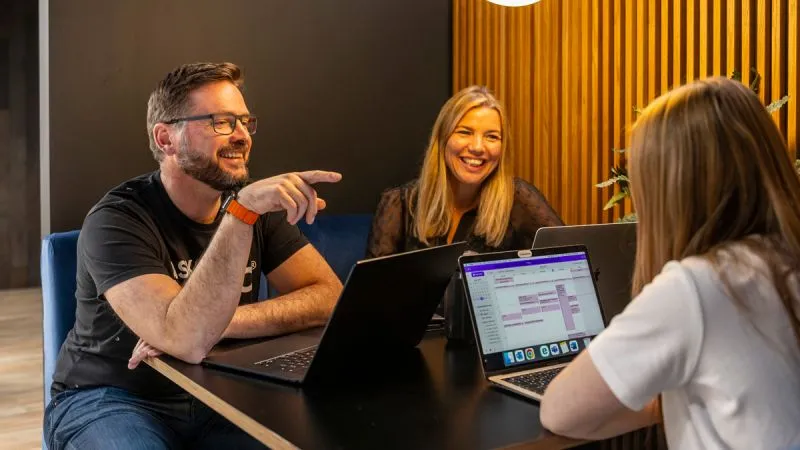
Not many business leaders can say they’ve had bullets sent to them through the post, been poisoned by their nanny and arrested on multiple occasions.
Jacqueline Gold CBE is the executive chair of Ann Summers and has taken the business from humble beginnings to a global superstar of business, battling adversity and life-changing moments along the way. The daughter of West Ham United Chairman and businessman David Gold, Jacqueline is a retail pioneer and champion for female empowerment. We met at her home, to talk all things business, legacy, and resilience.
Watch the full interview with Jacqueline Gold here
You didn’t come from an ordinary family – what was it like growing up in this environment?
My father is David Gold, a successful businessman in his own right. I think it was a sign of the times that when I was a teenager, my father didn’t really talk about his business and what he was doing, and I don’t think he ever imagined me going into business because I was a girl.
In those days, it was boys who followed in their father’s footsteps. But I was always incredibly hard-working, and I was keen to have financial independence – and I was very ambitious and creative.
I certainly didn't expect to go into the line of business that I did go into; and I think that is the case with many entrepreneurs. We tend to stumble across our opportunities.
You ended up going into one of the family businesses – Ann Summers. How did you find this?
The environment was very male-dominated, and in the stores, the typical customer was from the raincoat brigade; and only 10% of our customers then were women. It was not somewhere where women would want to shop, but what I identified was that women did want to be empowered in the bedroom and I could see the opportunities to grow the brand and the business.
So how did you go about this?
I remember going to a party and women at the party were asking me – ‘have you ever thought of doing any Ann Summers parties?’ and I just thought it was a great idea. I lived in Biggin Hill at the time, and I remember holding a party with the products that we had and switching on the toys and passing them around, and the customers came alive.
They were nervous, but curious, inquisitive, and excited all at the same time. And I could tell very early on there was something there. It was just about creating a very female-friendly environment, where women felt comfortable, and introducing the parties played a pivotal role in changing and growing the business.
When you were growing the business, did you have to fight against the notion that you were given the business because of who your father was?
I admire my father so much and he's been a great mentor to me, but his fame didn't come until much later and Ann Summers was a much smaller business then: there were just four stores when I joined the business. It was going in a different direction to what I thought it should, and it was great to have the confidence and backing from him to make a success of it.
I was determined to grow the business and regardless of who my father was, I had to make it a success in my own way. I had a lot of pushbacks from other senior members on the board and I remember going to my first board meeting to talk about some of the ideas I had. There must have been about six grey-suited middle-aged men sitting around the table. When I talked about my idea, one board member stood up, threw his pen down on the table and said ‘This isn't going to work is it? Women aren't even interested in sex.’
This must have made you even more determined?
Well, my conclusion was that this said a lot more about his sex life than it did about my idea. They did agree to invest though. I used to drive to the Strand Palace Hotel in my mustard-coloured Mini, and talk about my ideas to people who had replied to our adverts, and it just grew and grew – and people saw the vision and how it was going to be successful.
It all started with those eight women at the party though, and in less than a year, I had 500 sales ambassadors and more stores opening.
Would you say that women are more empowered now in business and life?
Women are more empowered, and I think Ann Summers has played a big part in that, and it is something I am very proud of. There is no doubt that women are making a lot of decisions themselves, both in business and in life.
You are known for your resilience, having been through many setbacks. Can you tell us more about that?
I've overcome several challenges in my life and resilience is one of my key characteristics. I lost my son at eight months old; I have had breast cancer; and I've been poisoned by my nanny. I've been arrested twice, and I've received a bullet through the post.
These are just a few examples of what I have been through, and they were all extremely difficult to deal with. If you can find some positivity in the obstacles life throws at you, you can survive them, and I think this is what resilience is; and you need it in life and in business. Unless you can say ‘There must be something positive in what is happening and something helpful about this experience’, I just don't think you could survive it.
Do you believe the millennial generation is able to cope as well as the older generation did and has that level of resilience?
I think you must be a certain type of person to cope with them in the way that I have done, and I don't think that is a generation thing. I think that's more of a mindset thing, and it is about having the self-belief that you can get through this.
The younger generation have different challenges than we had. Social media is a big challenge for young people and so is having to keep up with what your peers are doing and how instant everything is. There are positives to social media though, but I think it can impact young people's wellbeing and their outlook on life.
I want to take you back to March 2020 – it must have been very difficult for you when your shops were closed due to the pandemic?
I remember sitting on my coffee table and staring at the TV. I was shell-shocked and couldn’t believe it was really happening. No retailer has ever had to close their stores like this, and we were faced with closing over 100 of our shops and it was heartbreaking.
It was my baby, and this is what I had built for the last 40 years, and I couldn’t stop thinking about our 1,000 colleagues and what we were going to do. I'm good in a crisis though, and I just thought ‘Let's put a plan together and let’s be optimistic’ – and that is what we did, together with my awesome team.
Who inspires you in business?
I'm going to say Anita Roddick. The reason I choose her is because I think she was the first person to have a purpose in business. What I mean by that was a mission and a successful brand built around it. I think successful businesses today are those that have a purpose, and she had a purpose. She put a stake firmly in the ground and she really owned her space; and while she's not with us anymore, The Body Shop is still very relevant today.
I also admire Sara Blakely, who founded Spanx and recently sold it for a huge amount of money. I think she's very inspirational.
My third choice probably would be Steven Bartlett. I think for the younger generation, to have somebody so relevant and engaging is great.
If you were to start your business today again and you were 18, what do you think you would end up doing?
Well, I hope it would be the same, because I've loved every minute of my journey. But if it wasn't, I would still like to be working in something that had female empowerment at its core. This is something that I always gravitate towards because I feel so passionate about that.
In my own business, I had the opportunity to empower women in the bedroom and, later in my career, I realised that there was an opportunity to empower women in the boardroom too.
Do you have any regrets?
No, not many. I do wish I would have networked more but it can be difficult for women, and when I was starting out, they were very male-dominated. I would say, a lot of it is about the preparation that you do beforehand. It's about understanding who's going to be there, making sure you pick the right events, identifying the key people that you want to meet up with, and perhaps engaging them with them on social media beforehand.
What is your advice to aspiring entrepreneurs?
Whatever business you go into, make sure it has a purpose that is authentic; and you will need to have a clear point of difference that sets you apart from your competition. You can’t be a 'me-too' product or service, otherwise you won’t survive, unless it is something truly innovative.
Being able to adjust to your environment and adapt is something that I feel is important too. For female entrepreneurs, it is also about self-belief. If you ever doubt yourself, keep a list of all your achievements and read them back to yourself before you go into an environment that might give you a wobble.
What do you want your legacy to be?
I think the key to retail is to be agile. And I think those companies that have been agile during the pandemic have proved that they can adjust to different environments, and retailers do have to adapt very quickly. I think that we are very well-positioned to respond to those types of things, and I want the legacy of Ann Summers to be built around this and I want it to be applicable to the younger generation coming through.
Underpinning this agility will always be sexual empowerment for every woman. That is our legacy.
Related and recommended
Richard Harpin, the founder of HomeServe and Growth Partner and owner of Business Leader, answers your burning business questions
Contestants from The Apprentice reveal the fundamental business lessons they learned from taking part in the TV show
From global talent pools to AI-powered documentation, a work-from-anywhere model is a new way of thinking about productivity, innovation and teamwork
The story of how cycling brought Business Leader member John Readman together with his co-founder and investors




